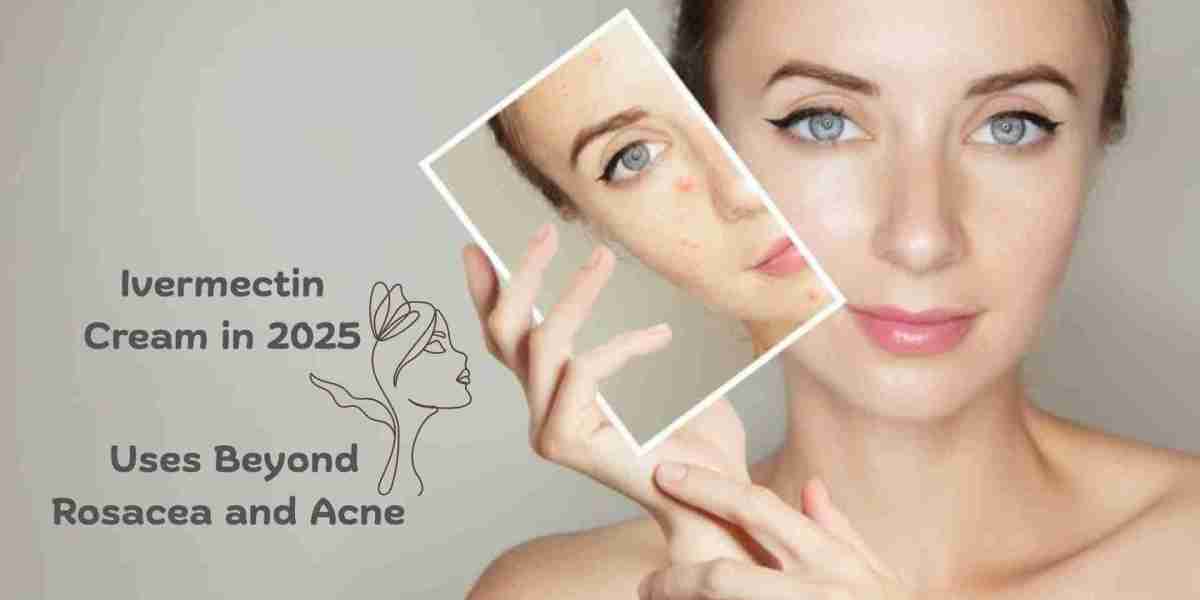In 2025, ivermectin cream uses have expanded dramatically, going beyond its traditional role in treating rosacea. Thanks to its powerful topical ivermectin formulation, it is now a go-to solution for a wider range of dermatological concerns including mites, acne, and various inflammatory skin disorders.
What is Ivermectin Cream?
Ivermectin is a macrocyclic lactone compound originally derived from Streptomyces avermitilis. Its antiparasitic and anti-inflammatory properties make it ideal for treating skin disorders caused by skin mites, inflammation, and bacterial imbalance. Formulated as a cream, it provides targeted relief with minimal systemic side effects.
Topical Ivermectin: A Dermatology Game Changer
Ivermectin cream has emerged as a vital tool in the dermatologist’s kit. Here are some of the skin conditions where it's proving effective:
1. Demodicosis (Skin Mite Infestation)
Demodicosis is caused by an overgrowth of Demodex mites on the skin. Topical ivermectin helps reduce mite populations while also soothing inflammation and redness.
2. Scabies
Scabies management traditionally involves oral ivermectin, but the cream has proven effective in treating localized infestations or for people who can’t tolerate pills.
3. Perioral Dermatitis
Often misdiagnosed as acne or rosacea, perioral dermatitis benefits from ivermectin's dual-action formula. Perioral dermatitis therapy with this cream has resulted in clearer skin for many sufferers.
4. LMDF (Lupus Miliaris Disseminatus Faciei)
A rare condition, LMDF responds well to LMDF treatment that combines oral antibiotics and topical ivermectin, helping to reduce papules and restore normal skin texture.
Ivermectin Cream vs Other Topical Treatments
Compared to benzoyl peroxide, azelaic acid, and metronidazole, ivermectin stands out due to its combination of anti-inflammatory skincare benefits and antiparasitic action. It’s effective in reducing both the source of skin problems and the visible symptoms.
Replacing Antibiotics for Acne?
Can ivermectin replace antibiotics in acne treatment? Possibly. Emerging evidence suggests it could be a suitable substitute, especially in cases linked to Demodex mites or inflammation. While it's not yet FDA-approved specifically for acne, its off-label use is gaining attention among dermatologists.
How to Apply Ivermectin Cream
To get the best results:
- Clean the skin thoroughly with a mild, non-irritating cleanser.
- Apply a pea-sized amount once daily to the affected areas.
- Use consistently at the same time each day.
- Avoid other harsh skincare products unless prescribed.
- Track your skin’s progress and consult your doctor as needed.
This regimen helps ensure you receive the maximum therapeutic benefits from this antiparasitic cream.
Is It Safe?
Ivermectin safety is generally well-established. Most users report mild side effects like temporary redness, slight burning, or itching. These are typically short-lived and resolve on their own. People with highly sensitive skin or those prone to allergies should consult a dermatologist before starting treatment.
Looking Ahead: Dermatological Treatments in 2025
Dermatological treatments in 2025 are moving toward safer, more targeted solutions. Ivermectin cream is a strong example of this shift—offering localized action without the risks of systemic medications. It’s particularly appealing for patients seeking non-antibiotic alternatives in an age where antibiotic resistance is a growing concern.
Conclusion
From rosacea to acne, scabies, and beyond, ivermectin cream in 2025 is revolutionizing the way we approach skin care. With minimal side effects and maximum efficacy, it is quickly becoming the preferred choice for both patients and dermatologists alike.
Whether you're treating skin inflammation caused by mites or seeking relief from stubborn skin flare-ups, ivermectin cream is a trusted ally.









